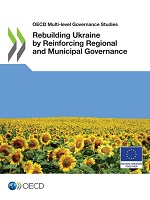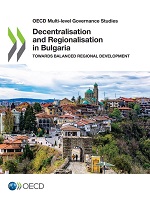Multi-level Governance
Decentralisation
|
Decentralisation is among the most significant reforms of the past 50 years. Driven by political and economic motivations and megatrends, it refers to the transfer of powers, responsibilities and resources from the central government level to elected authorities at the subnational level, which have some degree of autonomy. Implemented to varying degrees in a majority of developed and developing countries around the world, decentralisation has profound implications due to its complex and systemic nature. Decentralisation covers three distinct but interrelated dimensions: political, administrative and fiscal decentralisation. Finding the right balance among these dimensions and the right sequencing to implement them represent significant challenges in designing and implementing decentralisation reforms. Decentralisation is often accompanied by the upscaling of subnational governance through inter-municipal cooperation, metropolitan governance and the strengthening of regions (regionalisation). |
Thematic publications
|
|
|
|||
|
Regional Governance in OECD Countries: Trends, Typology and Tools |
Making Decentralisation Work: A Handbook for Policy-Makers |
Asymmetric Decentralisation: Trends, Challenges and Policy Implications |
||
|
This report provides key information on regional governance reforms and their drivers over the past 50 years, including an innovative typology of regional governance models across OECD countries, with varying institutional and financing arrangements. It features key recommendations, including instruments facilitating vertical cooperation across levels of government and interregional cooperation, monitoring and evaluation processes and tools for stakeholder engagement. |
This report presents 10 guidelines decentralisation to work and be conducive to regional and local development. Beyond the guidelines, it proposes concrete tools for policymakers, including detailed sets of recommendations, checklists, pitfalls to avoid and examples of good practices in unitary and federal countries. |
A growing number of countries in the OECD and beyond are moving toward asymmetric decentralisation, i.e., a differentiated assignment of powers, responsibilities and revenues across subnational governments, for the same level of administration. This paper aims to shed light on the various forms of asymmetric decentralisation, obstacles and best practices when implementing asymmetric decentralisation policies. |
Country reports
|
Related works |
Contact |
|
Multi-level governance & Decentralisation
Fiscal decentralisation
Territorial dimension of COVID-19 & recovery |
|
|
More information
|
Related Documents





-150x200.jpg)
